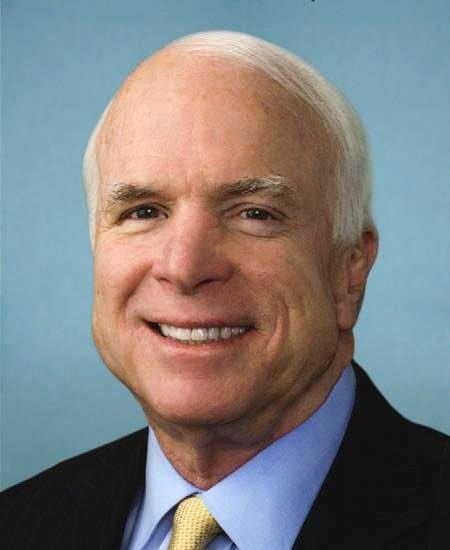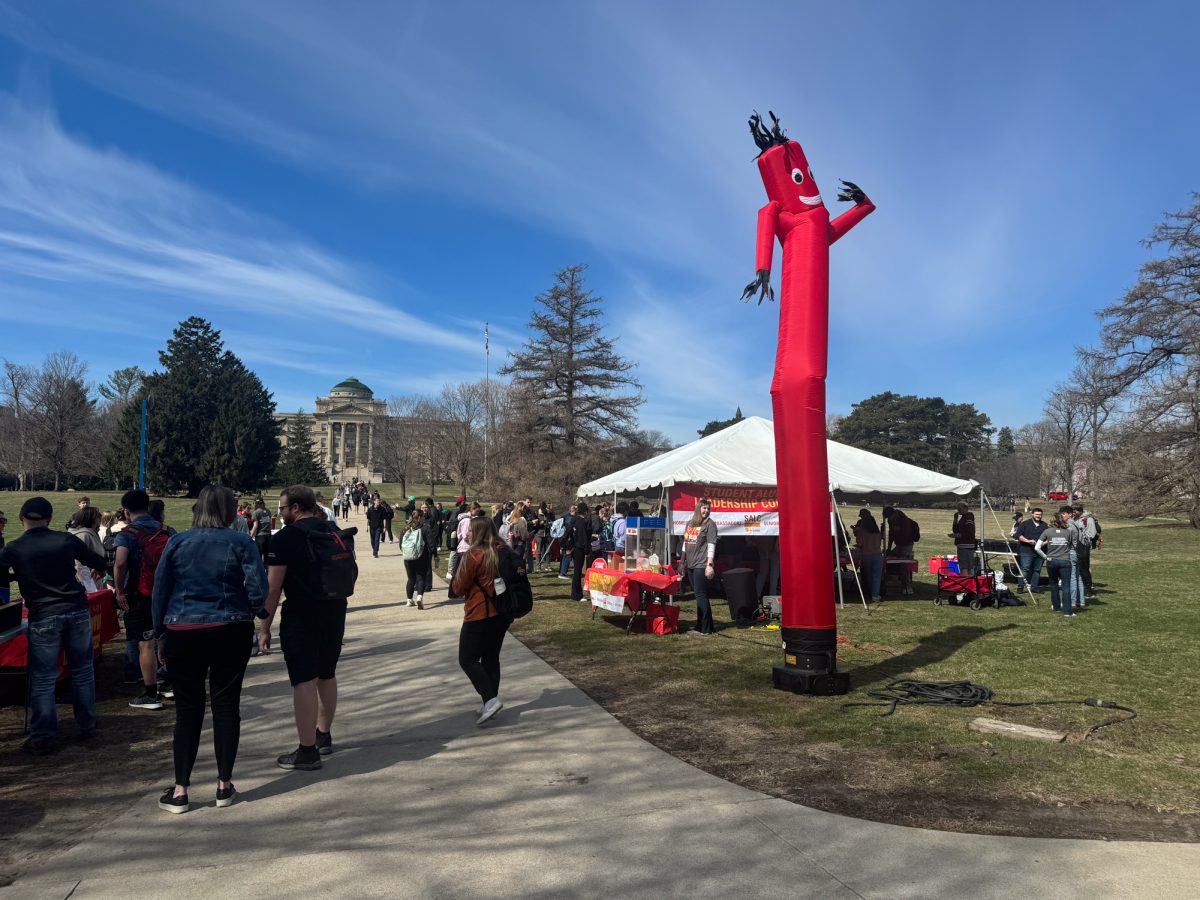Iowa State community reflects on legacy of the ‘maverick’ John McCain

John McCain
August 26, 2018
Senator John McCain died at 81 in his Arizona home Saturday after a months long struggle with a virulent form of brain cancer. His death came just days after his family announced he halted treatment for his illness.
McCain is remembered as a decorated veteran, an influential senator with decades of experience and two-time presidential contender. His legacy is that of a conservative and political maverick who was not afraid to defy Republican leadership.
McCain came from a line of decorated U.S. veterans. His father and grandfather were both four-star admirals. McCain rose to fame during the United States occupation of Vietnam.
Taylor Collins, Iowa Federation of College Republicans Chairman and Iowa State Alum, said he was with Lt. Gov. Adam Gregg when the news of McCain’s death was released.
“The first thing we reflected on was his military service and his independence in the legislature,” Collins said. “And how he, despite party factions, he was always an independent voice, which I think people have a great respect, especially in times of party tribalism.”
In recent years McCain was the key vote on issues like healthcare.
“He was a man who reached across party lines and put his country before party,” said Kelly Shaw, senior lecturer in political science at Iowa State.
People will remember McCain as a “maverick” Shaw said.
When it came to his voting record, Shaw said McCain still voted along party lines but diverged enough to set himself apart, a quality that Shaw thinks is going away.
“He often times put country before partisanship, and that would sometimes get him in trouble but he would vote his conscious anyway,” Shaw said. “As an elected official myself, I see less and less of that common ground.”
Ashton Ayers-Ingle, a sophomore in political science and political director for Iowa State College Democrats, said McCain would likely be remembered politically for his nickname “the maverick,” but would be characterized as a person for his time in the military.
As a member of the military, Ayers-Ingle stated his respect for McCain’s time serving.
McCain served as a naval aviator and his plane was shot down over Hanoi. He became a valuable prisoner of war due to the high-ranking status of his father, a U.S. forces commander, and was held as a prisoner for more than five years.
He sustained many injuries in that time and remained disabled throughout his political career. He never again could lift his arms above his head. “As a military man, I respect his steadfastness and dedication he showed during Vietnam,” Ayers-Ingle said. “He respected the code POWs are supposed to follow when he was captive. I think he will be remembered militarily for that.”
While Ayers-Ingle recognized McCain’s descent from the Republican agenda on certain issues, he said McCain still voted with the party for the most part.
“I think McCain was a unique and dynamic, controversial figure,” Ayers-Ingle said. “He ought to be remembered that way and treated with respect. He ought to be lauded for his honorable service in Vietnam and he ought to be criticized, eventually, for his shortcomings. The time for that is not now, in my opinion.”
When McCain did dissent, it often brought him at odds with Trump who feuded with him during the 2016 election season and continued the feud into Trump’s presidency. McCain often criticized Trump for what he saw as disdain for immigrants and minorities and praise for authoritarian rulers, particularly Russian President Vladimir Putin.
“President Trump proved not only unable, but unwilling to stand up to Putin,” McCain said in a statement after Trump attended a joint press conference with the Russian President.
Trump took to Twitter after the senator’s death and offered his condolences to the McCain family.
“My deepest sympathies and respect go out to the family of Senator John McCain. Our hearts and prayers are with you!” the President tweeted.
Collins said focusing on McCain’s feuding would be “doing a disservice.”
“You know there is always going to be political feuding whether it is with your party or the other party,” Collins said. “I don’t want entertain talking about the feud between President Trump and John McCain. I think it would be a disservice to his life and legacy.”
Instead Collins said it would be best to focus on his independence.
“Someone said it best, most politicians try to copy someone else when they are running for office and trying to conduct themselves,” Collins said. “John McCain was one of his own. He was his own man and no matter his political affiliation people have respect for that.”
Former Presidents George W. Bush and Barack Obama will give eulogies at his funeral at the late senator’s request. Bush and Obama both issued separate statements responding to McCain’s death.
“Some lives are so vivid, it is difficult to imagine them ended. Some voices are so vibrant, it is hard to think of them stilled,” said a statement from Bush. “John McCain was a man of deep conviction and a patriot of the highest order.”
McCain and Bush battled for the Republican primary in the 2000 presidential race. Bush would come to win the primary and eventually the general election, securing his place as America’s 43rd president.
“John McCain and I were members of different generations, came from completely different backgrounds and competed at the highest level of politics,” Obama’s statement read. “But we shared, for all our differences, a fidelity to something higher — the ideals for which generations of Americans and immigrants alike have fought, marched and sacrificed.”
McCain won the Republican primary in 2008 in the wake of the financial crisis, but was bested by Obama in the final election. Obama won 53 percent of the popular vote to McCain’s 46 percent.






